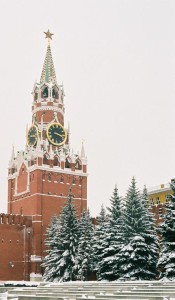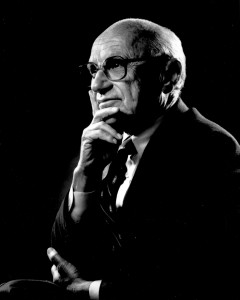Economics was dubbed ‘the Dismal Science’ by the famous Victorian historian Dr Thomas Carlyle. It was his response to the economist-cum-prophet of gloom Thomas Malthus, who claimed that a constantly expanding world population would cause perpetual shortages of resources and produce widespread misery.
Carlyle was well qualified to make judgments about misery. He was notoriously unhappily married, and thus something of an expert on the subject.Indeed, the marriage was so unhappy, an acquaintance was prompted to remark that life would have been better for the Carlyles had they married other people.
‘Oh, no,’ responded the other great Victorian, Lord Macauley, a confirmed bachelor. ‘It’s much better they married each other. That way there’s only two unhappy people rather than four.’
Be that as it may, Carlyle was right on the money when it comes to economics, but not because its practitioners are prophets of doom and gloom, but rather the reverse. Generically speaking, economists’ prognostications rarely seem to come true—certainly not Malthus’ dire prophesies.
Indeed, a majority of economists whose forecasts are reported in the news media these days postulate silver linings on the horizon that never materialise. After all, how many times over the past six years have economists assured us that the nation is enjoying a recovery from the current recession?
Oddly, or perhaps not so oddly, the Nobel laureate Dr Milton Friedman, arguably one of the Dismal Science’s most successful prognosticators, enjoys a high reputation, based on statements most ordinary people immediately see as self-evident truths, but which seem to elude the grasp of many of his fellow practitioners.
(a) ‘There is no such thing as a free lunch.’
(b) ‘If you subsidise something, you get more of it.’
I rest my case.
Actually, it is unfair to imply that economists have a monopoly on failed or false prophesy. There are plenty of false prophets in the realm of international affairs, for instance.
I shall forebear on commenting on the current negotiations between the U.S. Administration and the Ayatollahs in Teheran. At the time of writing, no agreement had been concluded and no terms had yet been published.

Spasskaya tower by Mathew Dodson. Licensed under CC BY-SA from Wikimedia
(At this point, truth in advertising compels me to confess that back in the late 1960s and early 1970s, I made my living as a ‘Kremlinologist’. Thus I know that of which I speak.)
‘Kremlinology’ might seem a romantic way to earn a living. The word conjures up visions of sinister spies, the rattle of machine guns at remote border-crossings, beautiful blondes and exotic restaurants in equally exotic cities.
Not so, lamentably. Kremlinology was far from romantic. To be sure, there were ‘interesting’ opportunities for travel. But, mostly, Kremlinologists devoted their lives to pouring over obscure academic journals and technical publications.
They reached their conclusions by painstakingly analysing abstruse industrial statistics, culled from dreary, yawn-provoking dissertations on subjects as mundane as cement production, coal shipments, and steel output, or occasionally as esoteric as the extrusion of underwater denture adhesive.
For all that mind-bending effort, Kremlinologists were by no means always right. Back in my day, they were way off track about Soviet technology. The consensus was that it was marvellous. In fact, it was primitive—almost beyond belief.
In any event, we had a very good excuse for being so far off the mark. The USSR and its allies were extraordinarily secretive societies. They told us absolutely nothing about themselves. More often than not they deliberately tried to deceive us. Thus, we had no alternative but to guess, and hope we were right.
‘Parsonology’—a discipline closely related to ‘Kremlinology’—is another ‘science’ whose practitioners enjoy a less than stellar success rate comparable with that of economists and Kremlinologists.
It’s the science of determining what’s going on in a parson’s mind without actually communicating with him. It works on the same lines as Kremlinology—albeit on a more modest scale.
Kremlinologists dealt with the battlefield performance of the Red Army. Parsonologists deal with the rector’s thoughts about, say, the Knitting Circle, the mid-week Evening Prayer Service, and the Parish Life Committee.
The methodology seems to be basically the same, judging by the results: Many Kremlinologists, for example, forecast that the Soviet Union would out-perform America economically and ultimately become the world’s sole superpower—a bizarre deduction, and wholly unwarranted by the USSR’s actual economic performance.
Parsonologists, using similar methodology, would probably conclude that the rector wants to make the Knitting Circle a Crochet Cooperative, have Evening Prayer read in Swahili from beneath the font, and encourage the Parish Life Committee to sign a pact in blood with Satan to increase Cookie Walk sales.
Back in the old days, I often used to wonder what Brezhnev & Co. felt about us second-guessing them. Now I know exactly how they felt: bemused, befuddled, and bewildered.
Brezhnev and his cronies, mind you, had only themselves to blame. If they had agreed to take our telephone calls, they could have given us the straight dope about what was going on in their minds, and we would have printed it.
Parsonologists who would like to be given the straight dope about what’s going on in the minds of St Stephen’s clergy need only lift up the phone. Better yet, buttonhole us in person. But be warned: It’s likely to be a bit of a let down. Our notions are likely to be rather less exotic than folks imagine.
It’s salutary to remember that the only prophets with a 100 percent record of accuracy are to be found in the Old Testament—Elijah, Isaiah, Jeremiah, et al. Of course, nobody believed a prediction they uttered. Sic transit gloria mundi! GPH✠



